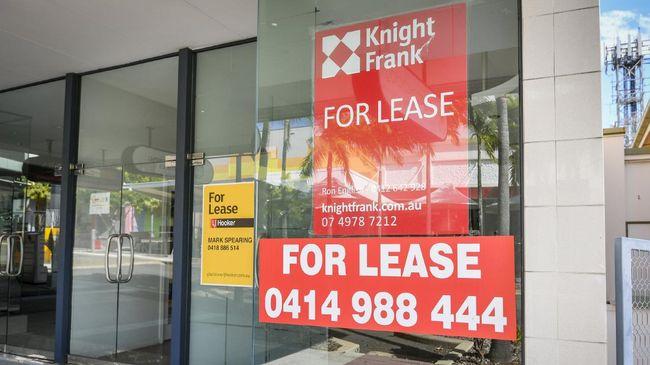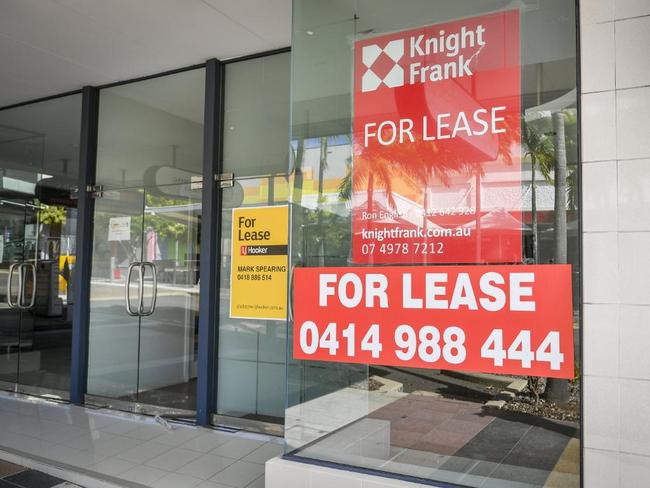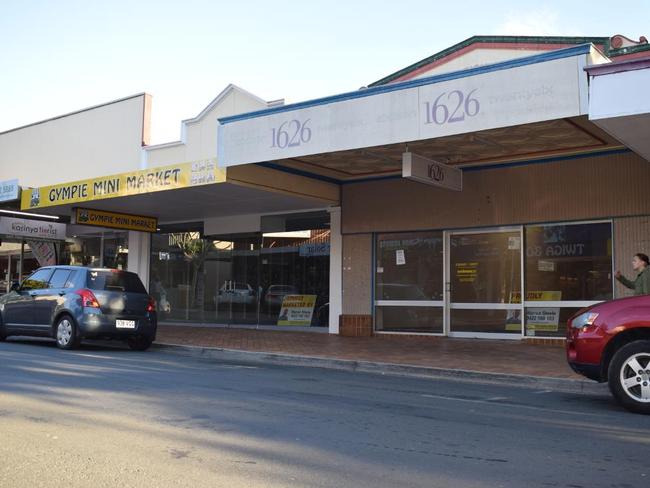Boarded-up storefronts sound death knell for regional CBDs
Regional Queensland’s “main street’’ is dying as the sight of boarded-up shops replaces the bustle of once thriving centres of commerce.

REGIONAL Queensland's "main street'' is dying as the sight of boarded-up shops replaces the bustle of once thriving centres of commerce.
The challenges faced by Queensland regional small business operators have renewed calls for the Federal Government to consider regional incentives such as the decentralisation of the public service - a policy that flared and died last year when then-National Party leader Barnaby Joyce attempted to get a department relocated from Canberra to New England.
Parts of regional Queensland are getting an injection of economic vigour following an upswing in mining activity, but most regional towns and cities are despairing about the state of their business districts.
Gympie, two hours north of Brisbane, is one of the worst-hit regions, with its commercial precinct hosting 62 vacant properties.
In Toowoomba there are about 25 vacancies across the prime CBD area of 155 shops, while in Gladstone there are 17 empty premises in the CBD.

There are still vacant store fronts on Rockhampton's East St while further north in Mackay, where new businesses are sprouting up because of the mini-mining boom, Victoria St hosts several empty store fronts.
The Palace Hotel, on the corner of Victoria and Sydney streets, has stood empty for nearly a year.
In Townsville, almost 50 vacant stores now litter two blocks of what was once prime commercial real estate along Flinders St which was once the commercial hub of the north, boasting upmarket stores including David Jones.
In Toowoomba, Mayor Paul Antonio - who readily acknowledges the role of the shopping centre in the collapse of many regional CBDs - is examining options to revitalise the Toowoomba town centre, including the return of the multi-storey car park.
"But you have to look at these things with a different angle - you might be better off having a few lower areas devoted to parking and the top layers for residential units,'' he said.
In Mackay, the Council under Mayor Greg Williamson has launched an innovative fightback plan, the Mackay Waterfront Priority Development Area, which earmarks 170ha of land on the south side of the Pioneer River to be developed.

Cr Antonio, who leads one of the more vibrant regional economies in the state, having been supercharged by the Wagner-built international airport, said the malaise of some regional cities could be remedied by a more equitable spread of public service bureaucracies across the nation, but said forcing the relocation of major established state and federal departments would cause problems.
Seeding the regions' embryonic bureaucracies in new and developing departments, and having younger employees educated into knowing where their employment would be served, would allow a change of culture with a minimum of disruption, he said.
Two senior Nationals, Fiona Nash and Barnaby Joyce, last year pushed for decentralisation, but the Coalition appeared to back away from the idea with the 2018 Budget relocating fewer than 100 positions, across just six agencies, out of Canberra and other major cities.
Further north, "Regional Development Australia,'' an advocacy groups representing a large tract of regional Queensland from The Isaac Shire in the Mackay/Rockhampton hinterland up through the city of Mackay and on to the Whitsundays, has urged a federal parliamentary committee examining regional inequality to adopt a clear regionalisation and decentralisation policy which encourages industry into the regions as an alternative to "ad hoc public sector decentralisation.''
The group told the Senate Standing Committee of Economics that a clear-cut regionalisation decentralisation industry policy would have the twin impacts of decongesting cities and sparking regional economic growth,
FIFO arrangement also had a negative impact on regional economics and incentive capital city living, the group said.


